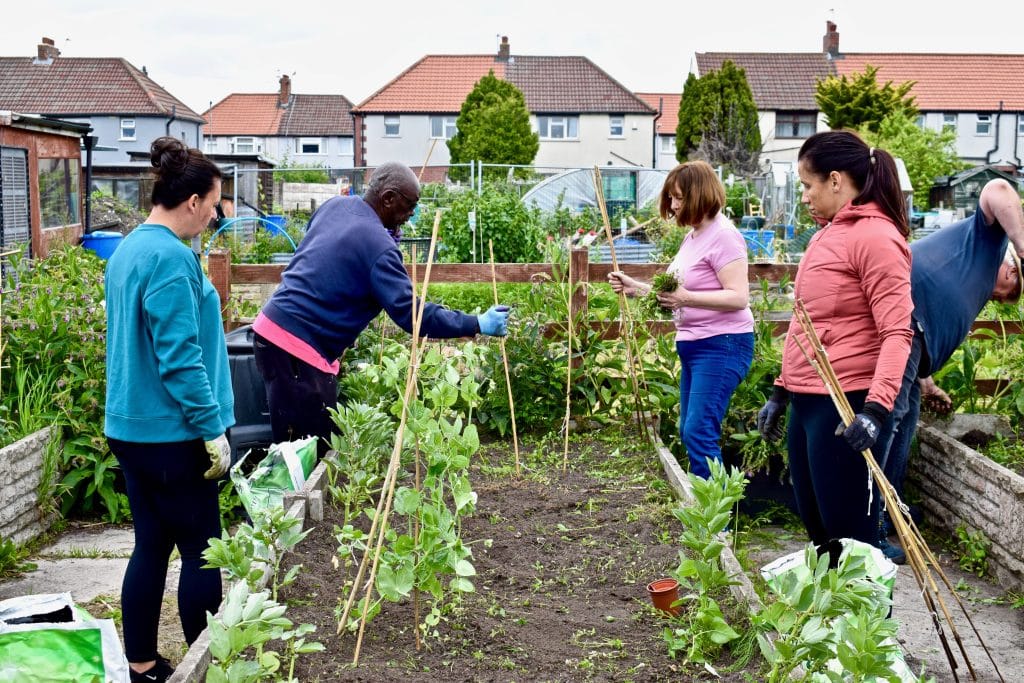The All-Party Parliamentary Group for ‘left behind’ neighbourhoods report Levelling up through climate action: A once in a lifetime opportunity to make sure no neighbourhood is ‘left behind’ looks at how such places could play their part in – and benefit from – the UK’s transition away from fossil fuels.
While the COP26 Summit discussed and agreed action on national and international levels it will be at neighbourhood level where people can achieve the kinds of change that will help achieve a just transition to a zero-carbon world.
To this end, the APPG’s report calls for investment specifically into ‘left behind’ neighbourhoods. These are areas that rank highly on indices of multiple deprivation and also lack social infrastructure – places and spaces to meet and community organisations to create connections and promote community leadership.
Among the key recommendations to ensure a transition that leaves no community behind is a Community Wealth Fund – set up using £2bn of dormant assets.
The money would be used to invest in building community capacity and confidence securing local leadership on climate adaption and mitigation projects. It would also help to ensure these communities are able and ready to access good ‘green’ jobs and transition local industry and jobs away from carbon intensive to more sustainable activities.
In addition, it recommends a Just Transition Fund, targeted specifically at the 225 ‘left behind’ areas to invest in practical steps towards transition such as insulating homes and helping local small businesses to adjust.
Recent polling for Local Trust, secretariat to the APPG, undertaken by Survation showed four in five people in these areas are concerned about climate change. A sizable majority (68%) believe that transition to net zero will be beneficial for their area. However, 62% would like to see more local control over the process.
The report shows for communities to be able to thrive through a time of transition they need long-term and steady investment in local capacity building. Enabling communities to plan and manage their own neighbourhoods will ensure that they can have full ownership of – and buy in to – the net zero agenda.
Paul Howell MP, Conservative co-chair of the APPG said:
“The government is committed to act on climate change at a national and international level, but we shouldn’t underestimate the capabilities of communities to develop climate positive projects at a local level as well – projects which benefit the local area and simultaneously help to reduce emissions and increase community resilience.
“Polling demonstrates there is considerable appetite for people in ‘left behind’ neighbourhoods to take action on climate change, but they need the resources, capacity and dedicated spaces to be able to do so, and the opportunity to use their skill set to help solve those problems through interesting jobs. This report sets out ways the government can offer practical support to help them do so.”
Rt Hon Dame Diana Johnson DBE MP, Labour co-chair of the APPG said:
“Climate change isn’t an issue for the future – it’s a crisis now and we need to act. As a cross-party group we are committed to ensuring that residents in ‘left behind’ neighbourhoods do not miss out on opportunities to act locally on the climate crisis. As we transition to net zero it’s essential that local voices are heard and that people have resources and capacity to take action on climate change in their local area.”
James Goodman, director of partnerships at Local Trust, which commissioned the polling and are secretariat to the APPG for ‘left behind’ neighbourhoods, said:
“As we see from projects like the one in Lawrence Weston, local people are incredibly adept at ensuring their areas are fit for the future of their communities, but they need the power and resources to ensure they are ready for and contributing to net-zero.
“It will be through building local capacity that we will achieve a just transition, ensuring communities aren’t left behind in the move to net-zero, but instead feel empowered, engaged and encouraged by the opportunities it presents for their neighbourhoods.”

